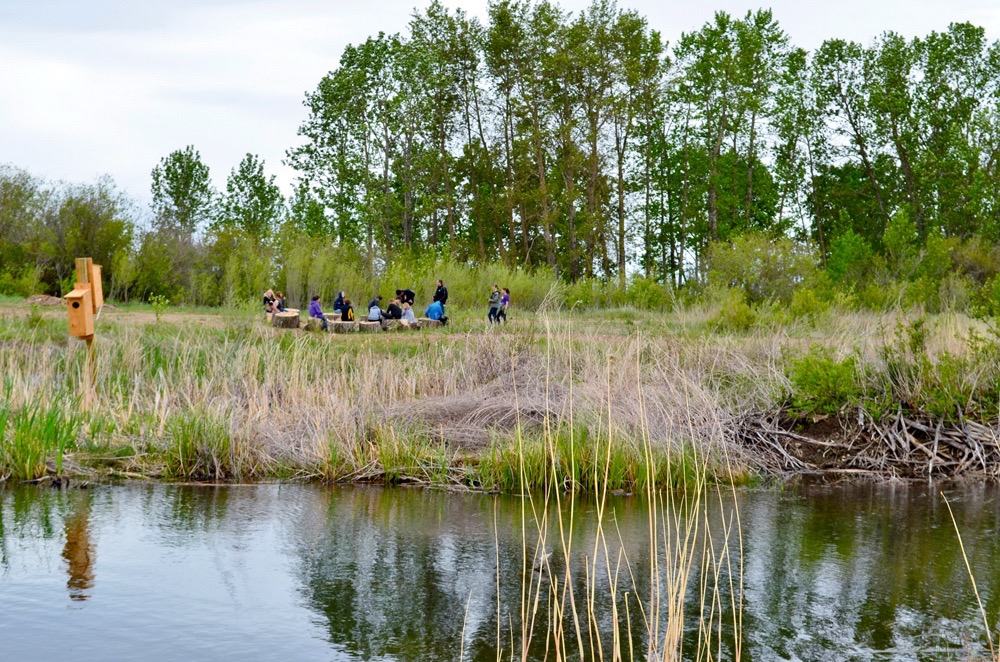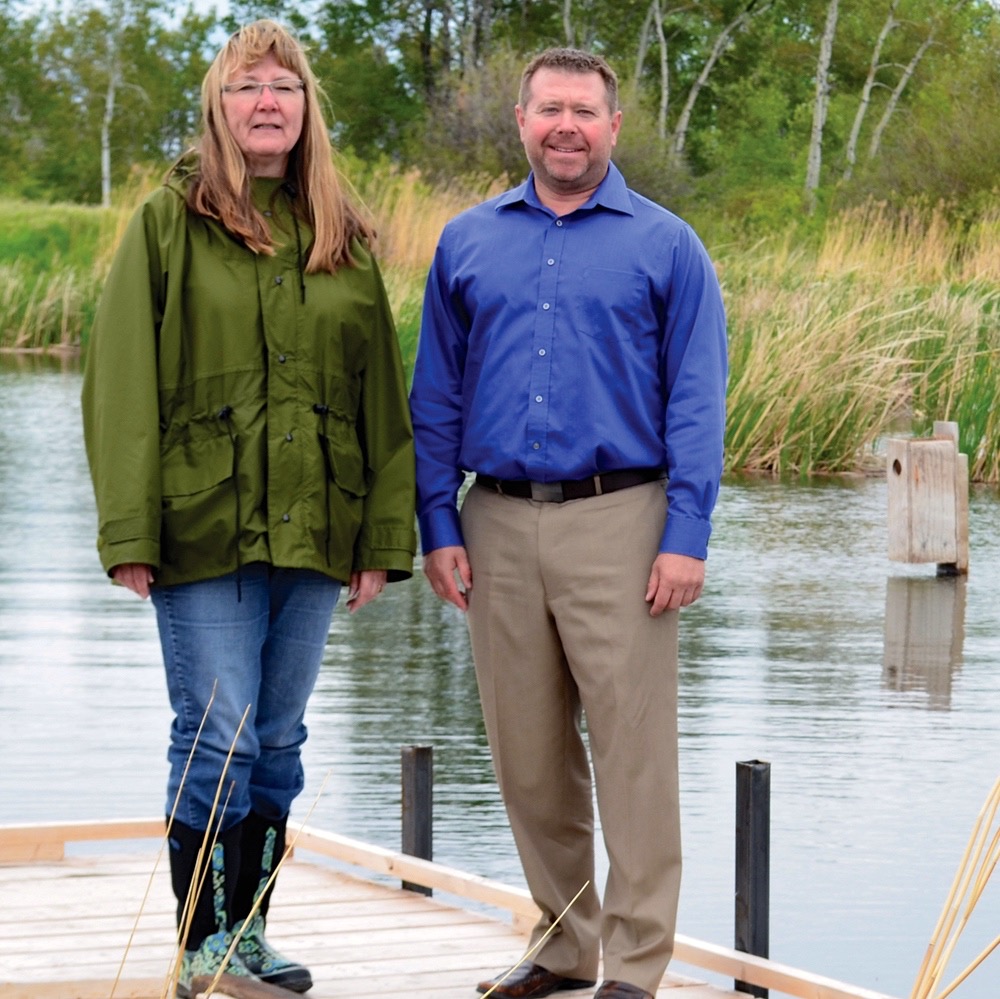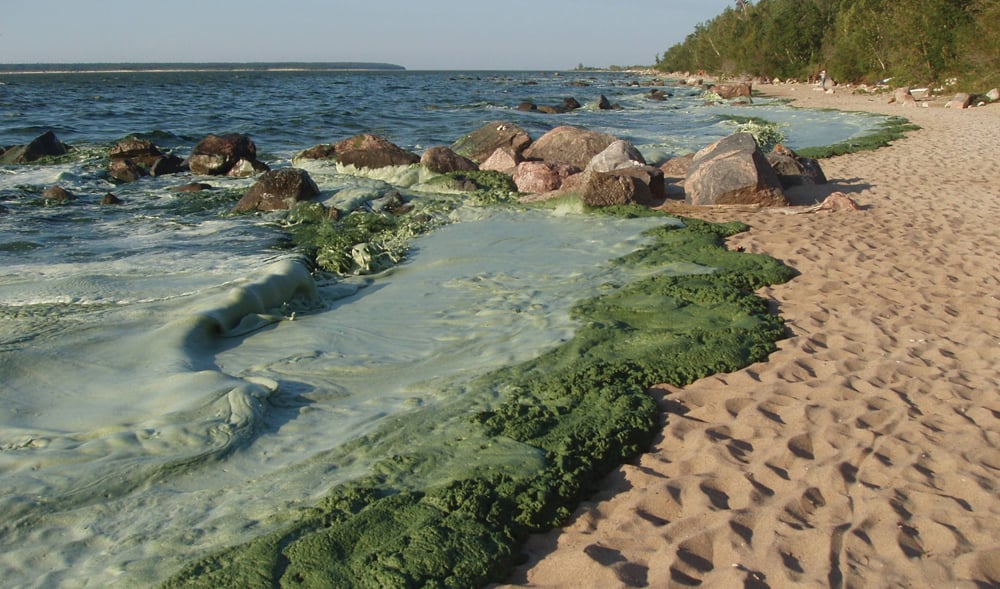More than a dozen provincial organizations have stepped up to help a small Manitoba community build a wetland centre of excellence.
Rivers Collegiate and Ducks Unlimited Canada have spearheaded the project that will see 60 acres of land turned into a site that promotes biodiversity and conservation of wetlands.
“In a world where people are becoming more and more disconnected from the environment, we are hoping to instil the importance in taking care of the natural ecosystems around us,” said Mike Klassen, principal of Rivers Collegiate and co-chair of the Rivers wetland project.

Klassen, who has been the driving force behind the project, holds a master’s degree in environmental education and has been a board member on the Canadian Network for Environmental Education and Communication since 2010.
“Environmental education fosters the development of the skills, attitudes and motivations to enable learners to make informed decisions and take responsible actions that incorporate environmental considerations,” said Klassen.
“The ultimate goal or outcome of environmental education is the creation of environmentally literate citizens. This is important because solving today’s challenging local and global environmental issues and moving society towards sustainability cannot rest only with ‘experts’ but will require the support and active participation of an informed public in their various roles as consumers, voters, employers, and business and community leaders.”
Read Also

Manitoba cattle prices, March 4
Chart of weekly Manitoba cattle prices.
While the site is open for the public to enjoy, the facility targets the local high school and elementary students.
“The students have been involved in so many aspects of this project already. From helping remove invasive clover and planting prairie grasses to our shop students, who have built and installed the bird boxes, bridges and docks,” said Klassen.
“I believe that having the ability to immerse students in these surroundings and have them guided by people who have a passion for what they are teaching will no doubt provide them with a number of lessons and connections that will stick with them for life.”
Both Rivers Collegiate and elementary school have developed new curriculum, centring on environmental conservation, wetland management and alternative energy.

“The high school has received a $15,000 grant to be put towards alternative energy programs and with this we intend to invest in a solar panel and wind turbine to power the wetland centre and establish programs in alternative energy,” said Klassen.
“We have begun discussions with the environmental programs at both Assiniboine Community College and the Brandon University, to see the possible connections we can make there in terms of the curriculum,” said Klassen. “We are hoping to eventually connect our program with theirs, so that the students would have the option of earning credits towards post-secondary courses.”
The new curriculum also enables the high school students to teach elementary students at the site, enhancing both group’s ability to learn from one another.
“Environmental education focused on children and youth is a particularly important strategy because it’s an opportunity to intervene at a key developmental stage of life and because children can be an important influence on the environmental behaviour of their parents,” said Klassen.

River’s Wetlands Centre of Excellence is located between the Rivers townsite and Rivers Provincial Park.
The project has seen partnership and sponsors from a wide variety of organizations including the province of Manitoba’s historic resources branch, Oak Hammock Marsh, Fort Whyte Alive, Assiniboine Community College, Brandon University, Manitoba Hydro’s forest enhancement program, Tree Canada and CN Rail as well as numerous others.
Ducks Unlimited Canada currently has 20 similar sites across Canada, with three located in Manitoba at the Virden Collegiate, Fort Richmond and Nellie McClung Collegiate in Manitou.
“It is amazing what is going on here. It is certainly a community project but we have seen support from all over the province,” said Donna Morken, co-chair of the project and president of the Rivers and Area Community Foundation.
“This area was formerly a CN gravel pit and sees a fair bit of community traffic now as it connects to town by a walking path. We have begun to enhance the area with a number of projects, including the recent planting of 92,000 jack pine seedlings, which were provided by Tree Canada on behalf of CN Rail through an environmental grant.”
Eight mature trees were also planted along the site’s northern border to act as a shelterbelt. The trees were acquired through Manitoba Hydro’s tree enhancement program.
Currently, the site consists of a network of gravel pathways, bridges, docks and bird and bat houses.
Upon completion, there will be an enclosed classroom for year-round use, interpretive signage, a boardwalk, viewing tower, and print box. Organizers are planning for a grand opening in the spring of 2016.
















